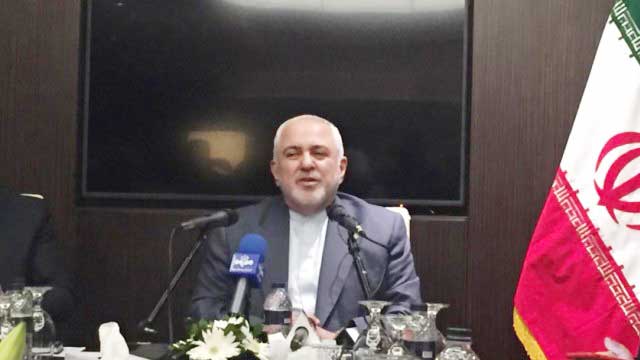A heightened conflict between India and Pakistan is dangerous not only for the Indian sub-continent, but also for the world, Iranian Foreign Minister Mohammad Javad Zarif said today.
“We don’t want to see any hard conflict between these two nuclear powers. It is dangerous for the region, it is dangerous for the world and it is dangerous for the Islamic Ummah. We need to work together in order to avoid that,” he said.
Pakistan and India are at the row over Kashmir after India scrapped the autonomy of Jammu and Kashmir. Pakistan has vowed to fight India’s decision to revoke Indian-administered Kashmir’s autonomy, including at the UN Security Council.
Javad Zarif, who spoke to the journalists on the sidelines of attending the Indian Ocean Rim Association’s (IORA) third ministerial conference, told a group of journalists at The InterContinental Hotel in Dhaka that Iran is concerned over the tense situation in Kashmir.
He also said he is concerned over the recent developments in Assam, which has published its final list of National Register Certificate (NRC) that excluded some 1.9 million Bangla-speaking people of the NRC.
“We have very good relations with India. It is a very important trade partner. But we have expressed the concerns over the tense situation in Kashmir,” he said, adding that they are engaged in discussions with India to ensure that rights of Kashmiris are recognized.
“We are also discussing with Pakistan and other OIC [Organisation of Islamic Conference] members states on the kind of joint actions that can be taken to prevent further deterioration of the situation in Kashmir.”
He said he is hopeful that the discussion will lead to more dialogue and understanding.
Javad Zarif also said Iran is in favour of addressing the Rohingya crisis through a dignified repatriation process, which is only possible if Myanmar grants citizenship to the Rohingya.
Zarif, who also called on Prime Minister Sheikh Hasina, Foreign Minister AK Abdul Momen and Jatiya Sangsad Speaker Shirin Sharmin Chaudhury, said Bangladesh and Iran have huge potentials of cooperation, including in science and technology, pharmaceutical industries, nanotechnology, energy, aerospace technology, nuclear power and petrochemicals.
The annual trade between the two countries now stands at $130 million, which the Iranian foreign minister says, is only a fraction of the potentials.
The US sanction on Iran is also negatively affecting the trade not only of Iran but also of other countries having trade with Iran, he said.
As an innovative way of addressing such problem, Zarif suggested reforms in the banking system of the trading countries.
“The most important restriction is when you use money across the border. If we use your currency in order to buy goods from you and you use our currency in order to buy goods from us, then it will be a totally different scenario. It requires banking innovation,” he said.





